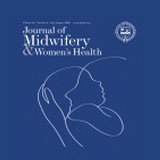
Journal originally posted on Midwifery.
Objective: to describe early results from the Community Maternal and Newborn Health (CMNH) training programme of the Maternal and Newborn Health in Ethiopia Partnership (MaNHEP) project. Design: a non-experimental, descriptive design was employed to assess training implementation. Setting six rural districts of Amhara and Oromiya regions, Ethiopia. Participants: 91 Health Extension Workers (HEWs) and 626 Guide Team members including Traditional Birth Attendants (TBAs) and volunteer Community Health Promoters (vCHPs). Intervention: CMNH is one aspect of a broader strategy to improve maternal and newborn health at the community level in rural areas of Ethiopia where pregnant women have limited access to health facilities. Measurements: performance testing of HEWs, TBAs, and vCHPs was conducted to assess transfer of knowledge and skills from CMNH Master Trainer level to CMNH Trainer level, and from CMNH Trainer level to CMNH Guide Team (GT) level on the topic areas of Prevent Problems before Baby is Born and Prevent Problems after Baby is Born. Findings: post-training performance scores were significantly higher than immediate pre-training scores for Amhara and Oromiya regions on both topic areas (p<0.001). For HEWs and GT members, respectively, average scores increased over 250% and 300% for Prevent Problems before Baby is Born, and over 300% and 400% for Prevent Problems after Baby is Born. Key conclusions: CMNH was successful in transferring knowledge to HEWs at the CMNH Trainer level and to Guide Team members at the community level. In order for gains to be realised and sustained, the CMNH programme will be nested within an enabling environment created through behaviour change communication to increase demand for CMNH services, emphasising evidence-based maternal and newborn care practices, teamwork among frontline health workers, and an enhanced role of HEWs in provision of safe care during pregnancy, birth, and the early postnatal period.